PEOPLE
Coordination
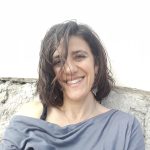
Verónica Policarpo
ICS-ULisboa
With a PhD in Sociology, I am a social researcher in the field of Human-Animal Studies, at the Institute of Social Sciences of the University of Lisbon, where I coordinate the Human-Animal Studies Hub, since 2018. In 2022 I was awarded an ERC Consolidator Grant to study how animals recover from disasters, in particular wildfires. The ERC project ABIDE: Animal Abidings: recovering from Disasters in more-than-human communities,will run between 1 May 2023 and 30 April 2028.
Before that, I coordinated projects"Liminal Becomings: reframing human-animal relations in natural disasters". [CEECIND/02719/2017]",on animals in disasters; and"CLAN: Children-Animals' Friendships: challenging boundaries between humans and non-humans in contemporary societies (PTDC/SOC 28415/2017)", on children and companion animals. In all my projects, I am interested in the construction of a more-than-human approach in which all living beings are considered as full partners, with equivalent rights.
At ICS-ULisboa I also coordinate since 2020 the post-graduate course"Animais e Sociedade" ; the International Summer-School in Human Animal Studies (co-coordination with Malärden University, Sweden), since 2019; the Reading Group Animal Wonder, since 2018; and the webinar"The Post-Human-Animal".
At ICS, I also participate in the SHIFT Research Group (Environment, Territory and Society) and the LIFE Research Group (Life Course, Inequality and Solidarity: Practices and Policies).
Members

Ana Rainho
ICS-ULisboa, Portugal

Andrea Pavoni
DINÂMIA'CET ISCTE-IUL, Portugal
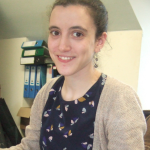
Filipa Soares
ICS-ULisboa, Portugal
PhD in Human Geography from the University of Oxford and BA and MA in Anthropology from the New University of Lisbon. She is currently a researcher at ICS-ULisboa, within the “Project People and Fire”. Her research has been focused on human-wildlife relations and the social and biopolitical dimensions of nature conservation, in Portugal and the UK. She has also participated in a study about the representations of the Iberian wolf and birds in Portuguese literature (19th-21st centuries) and co-edited a publication about owls in Portuguese popular culture.

João Graça
ICS-ULisboa, Portugal
PhD in Psychology (ISCTE – University Institute of Lisbon, 2016), and is currently Postdoctoral Research Fellow at the Institute of Social Sciences, University of Lisbon (ICS-ULisboa), and Invited Assistant Professor at Faculdade de Ciências Humanas, Catholic University of Portugal (FCH-UCP). His main interest is researching transitions towards healthier and more sustainable consumption habits, with a main focus on plant-based diets. He is also interested in understanding the psychology of human exploitation/protection of non-humans and the natural environment.
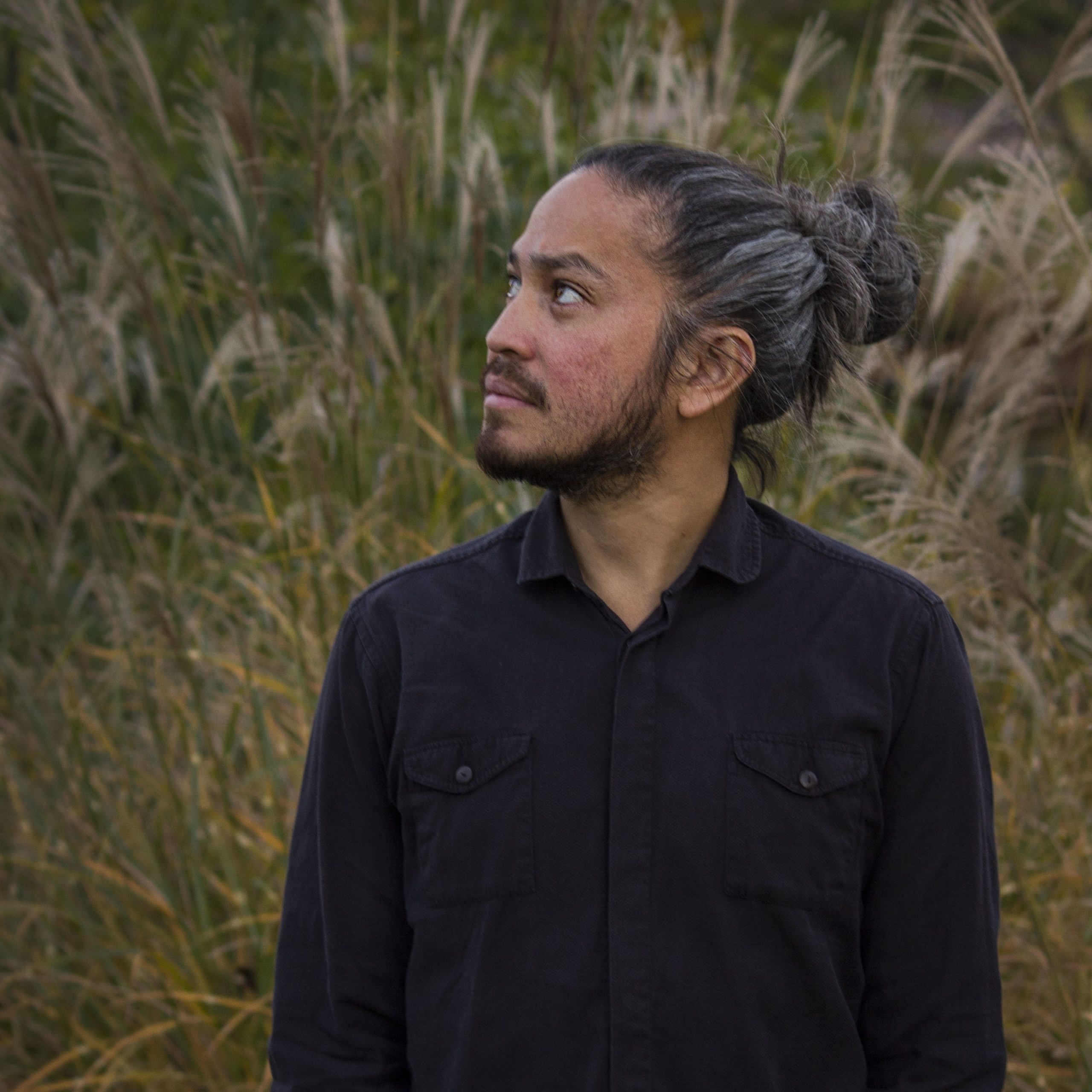
ICS-ULisboa
Kuai Shen is an artistic mediator of ant worlds who has a PhD in multispecies ethnography. His practice-led research employs technology-based performances and decolonial tactics to overturn conventional representations of ants within dominant research imaginaries. Kuai develops the concept of inverted aesthesis: the amplification of insect-human relations and sensorial abilities of invertebrates attuned to the more- than-human cultures, ecologies, and politics of indigenous ontologies.
His transversal work with ants has been published in the journals Society and Animals, Antennae, Art&Australia, Acoustic Space, and in the book Distributed Perception: Resonances and Axiologies. His artworks have been commissioned by Eli Broad Museum, FACT Liverpool, National Art Gallery Vilnius, House of Arts Brno, and the Quito Museum of contemporary art.

Leonor Galhardo
Professor
Leonor Galhardo is a biologist with a Master's degree in Applied Animal Behaviour (University of Edinburgh) and a PhD in Animal Science (University of Porto), in which she published several studies on psychological stress and welfare assessment in fish. She worked at the Directorate-General for Veterinary and Food (DGAV) and has been providing consultancy services on animal welfare for the last 20 years. During this period, she has carried out various activities in cooperation with competent authorities, professional associations and non-governmental organisations related to animal protection and welfare. The application and enforcement of legislation on the protection of wild animals in captivity has been a central aspect of her technical activities, within the scope of which the “Manual of Good Practice of the EU Zoos Directive” was published. Education in animal welfare is an important part of her career, having coordinated and taught several animal welfare courses for university students and professionals. She is a lecturer at ISPA-Instituto Universitário (Lisbon), where she teaches topics related to animal welfare and coordinates the Postgraduate Course in Animal Welfare.

Lisa Mestrinho
FMV-ULisboa, Portugal
Doctor of Veterinary Medicine (DVM) by the Faculty of Veterinary Medicine, Technical University of Lisbon. University Specialist in Odontology and Maxillofacial Surgery by the Complutense University of Madrid. Master of Science (MSc) in Oncology by the Biomedical Sciences Institute Abel Salazar, University of Oporto. European Master of Small Animal Veterinary Medicine in Dentistry by the University of Luxembourg. Doctor of Philosophy (PhD) in Veterinary Clinic by the University of Lisbon. Fellow of the Academy of Veterinary Dentistry (FAVD). Since 2003, she has been dedicated to cat and dog clinics, in particular general surgery, oncological surgery, reconstructive surgery, oral surgery and odontology. She is assistant professor at the Faculty of Veterinary Medicine at the University of Lisbon, where she teaches in the area of medicine, surgery and anesthesiology. She is also the coordinator of the optional course Advanced studies on odontology and oral surgery in dogs and cats. She is also a researcher at the Clinical Research Laboratory of the Interdisciplinary Research Center for Animal Health at the same faculty. She is responsible for the odontology and oral surgery of the Veterinary School Hospital. She was president of the European Veterinary Dental Society and is currently president of the Portuguese Small Animal Veterinary Association and elected member of the General Assembly of the Portuguese Veterinary Medical Association.

Luís Cordeiro-Rodrigues
University of Hunan, China

Maria Saari
University of Oulu
Maria Helena Saari is a Postdoctoral Research Fellow at the Faculty of Education at the University of Oulu and Visiting Scholar at the Human-Animal Studies Hub. She is currently Co-Leader of the Envisioning Sustainability Research Hub of the Biodiverse Anthropocenes Research Program and Chair of the Finnish Critical Animal Studies Network (CASFinland). She was awarded the Senior Animal Law Researcher Award by the International Centre for Animal Law & Policy (ICALP) for her doctoral thesis ‘Animals as stakeholders in education: Towards an educational reform for interspecies sustainability’. Her interdisciplinary research focuses on animals in education (policy and pedagogy), interspecies sustainability and justice, environmental education, and animal law. She coordinates and teaches undergraduate courses on environmental education and multispecies childhood studies. Prior to her research career, Maria worked in the field of education in teaching and leadership roles.

Mónica Truniger
ICS-ULisboa, Portugal
Mónica is a sociologist at ICS-ULisboa. She has been dedicated to research, teaching and communication on social food practices through research on food poverty, sustainable food consumption and the eating habits of families with children. She has published several books on these topics with Portuguese and international publishers.

ICS-ULisboa
Nuno is a biologist with more than 20 years' professional experience developing projects in Portugal, Brazil, Bolivia, Paraguay, and Mozambique. He has worked on topics around the ecology and conservation of biodiversity (particularly mammals), human-wildlife conflicts, monitoring protected areas, community participation, science communication and environmental education.
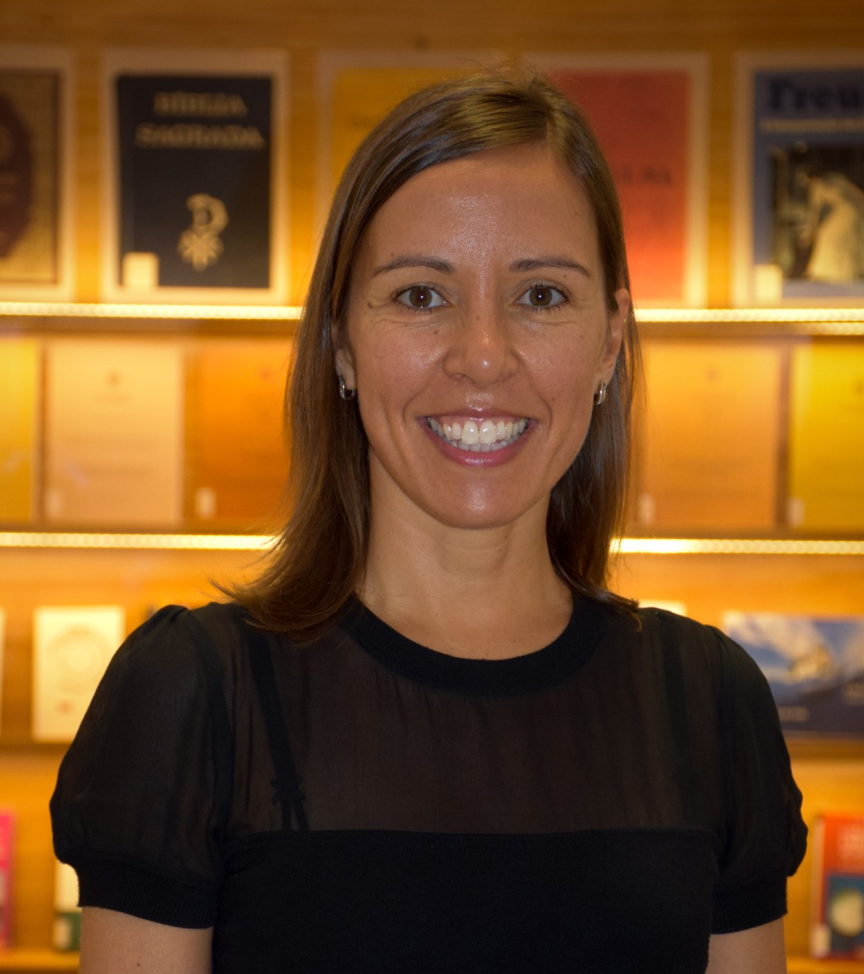
Patrícia Vieira
CES, University of Coimbra, Portugal
Patrícia Vieira is a Senior Researcher at the Centre for Social Studies (CES), University of Coimbra, and a Professor in the Department of Spanish and Portuguese at Georgetown University (USA). Her areas of research are Iberian and Latin American Literature and Cinema, Utopia Studies, and Environmental Humanities. Her most recent books are States of Grace: Utopia in Brazilian Culture (SUNY, 2018) and the co-edited book The Mind of Plants: Narratives of Vegetal Intelligence (Synergetic Press, 2021). She's the Principal Investigator of the project ECO - Animals and Plants in Cultural Productions about the Amazon Basin, funded by a Consolidator Grant from the European Research Council (ERC).
For more info: www.patriciavieira.net

Ricardo R. Santos
ISAMB, FM-ULisboa, Portugal
Board-certified biologist. Degree in Biology by the Faculty of Sciences of the University of Lisbon (FCUL). Complementary course in Philosophy by the Faculty of Social and Human Sciences of the New University of Lisboa (FCSH-NOVA). Attended several courses on Animal Behavior, Dog Cognition, Animal Welfare and Management of Animal Shelters (RSPCA, EFAW, CUAWIC/Cambridge University, Duke University, and University of Edinburgh). He worked voluntarily for more than a decade at a national animal rights NGO. Advanced education in Bioethics, Grief & bereavement, Qualitative methods, and Science communication. At this moment, he is concluding the Master in Science Communication, with a dissertation on strategic communication of science in health (FCSH-NOVA). Former investigator of the Center for Philosophy of Science of the University of Lisbon (FCUL), where he was member of the executive committee, the coordinating committee and assistant-head of the Philosophy of Life Science research group. He is now investigator of the Faculty of Medicine of the University of Lisbon (FMUL), namely at the Environmental Health Institute, where he’s the head of the communication and image office and team member of the Environmental Health Behavior Lab, and at the Center for Bioethics. He has been invited lecturer in Ethics of Clinical Research at the Doctoral Programme of the Lisbon Academic Medical Centre. He is also co-coordinator of the Museu da Memória de Medicina (FMUL) and member of the working group on predatory publications appointed by the FMUL’s Dean. Consultant to the Academic Center of Study and Intervention on Grief and Bereavement (FMUL). Editorial Board Review member of the Human-Animal Interaction Bulletin, edited by the American Psychological Association.
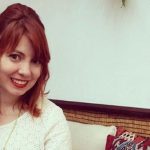
Rita Gouveia
ICS-ULisboa, Portugal
Rita Gouveia is post-doc researcher at the Institute of Social Sciences of the University of Lisbon (ICS-ULisboa). She has a BA in Social Psychology, a Master in Psychology of Education and Development, and a PhD in Sociology of Family, Gender, and Youth. Since 2014, she is member of the Executive Board of the RN13 Sociology of Families and Intimate Lives of the European Sociological Association and she was board member of the European Society of Family Relations (ESFR) between 2012 and 2018. Over the last decade, she has been strongly engaged in the development of theoretical and empirical research on families, personal networks, conjugalities, and life course at both national and international level. Another transversal dimension of her research interests is the permanent investment in innovative methodologies and complex datasets, such as social network analysis or longitudinal designs. She is currently investigating the changing meanings and practices of family in personal networks of gay men and lesbians in Portugal.
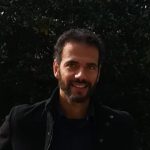
Rui Pedro Fonseca
CIES ISCTE-IUL, Portugal
Rui Pedro Fonseca is a research fellow in Sociology of Culture, by CIES-IUL. His current research interests are centered on the representations of "food animals" displayed by the dominant culture, namely the educational system. There is also a particular interest in understanding the practices and attitudes of (human) individuals that deal with these animals, both in the context of animal exploitation and through the practices that involve their consumption.
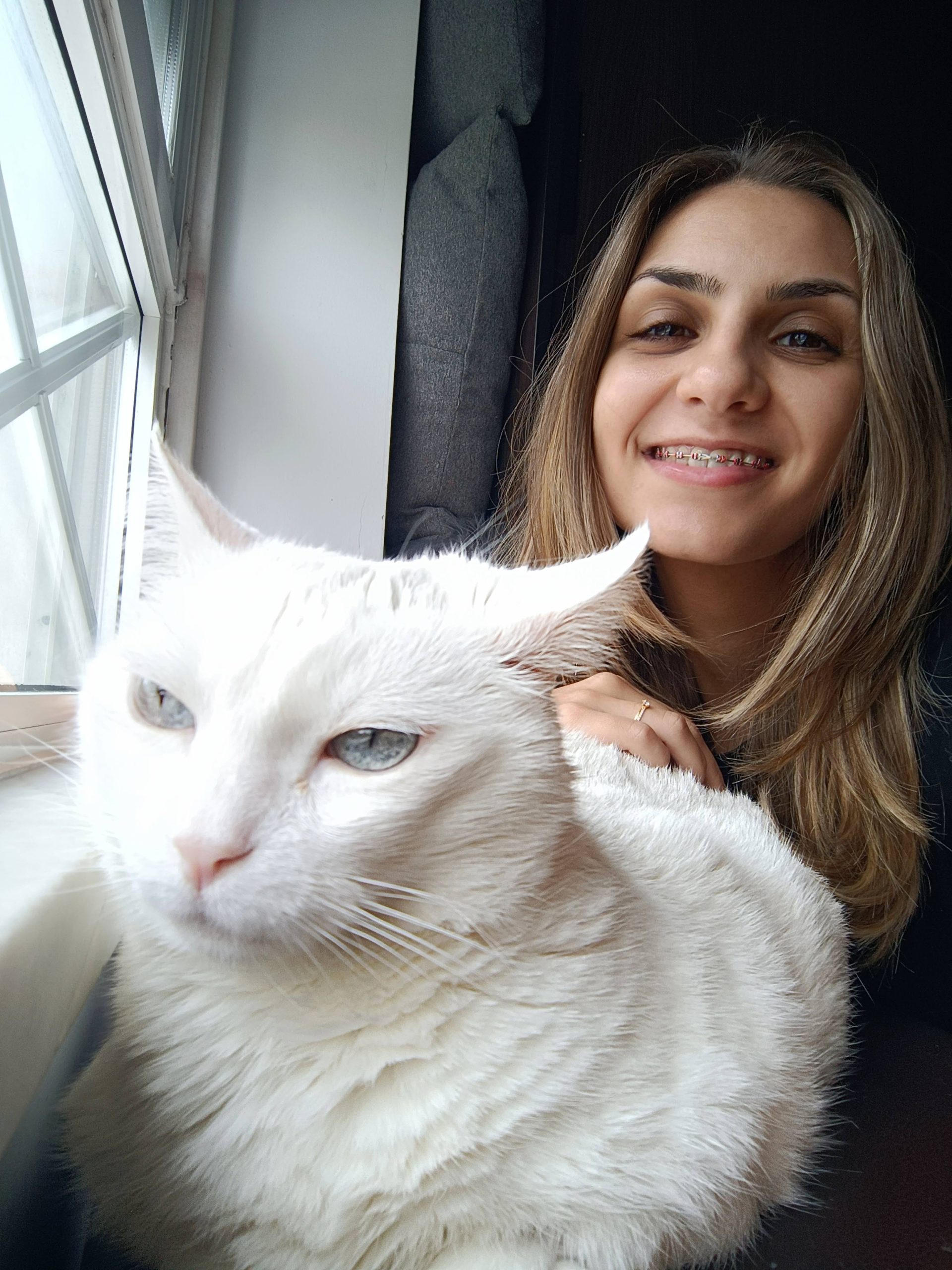
ICS-ULisboa
masters student
Sara has a BSc in Sociology from Iscte - University Institute of Lisbon, where she is also currently finishing her master's degree in Communication, Culture and Information Technology. In 2022, she did an internship at the National Civil Engineering Laboratory (LNEC), where she worked on natural disasters associated with floods. Focused on the social dynamics occurring in the media and with an interest in deepening the relationship between humans and animals, in April 2024 she joined the ABIDE team.
Areas of interest: Media, Culture, Communication and Society.

Sofia Biscaia
University of Aveiro, Portugal
Maria Sofia Pimentel Biscaia holds a doctoral degree in Literature by the University of Aveiro (2005). She has conducted interdisciplinary research in the fields of visual, gender and postcolonial studies, including on South Asian, African, British and Luso-American authors. She has published extensively in domestic and international journals and is the author of the book Postcolonial and Feminist Grotesque: Texts of Contemporary ExcessShe also co-edited the collection of essays Intercultural Crossings: Conflict, Memory, Identity. She is part of the international project Bodies in Transit 2which addresses how bodies have been historically transformed through social relations, discourses, and technologies, by drawing from feminist, queer, postcolonial and posthumanist theories of the embodied self. She has been increasingly interested in Critical Animal Studies and has presented numerous papers in international conferences on related issues ranging from queer animality, food studies, advertising and national identity, feminist and postcolonial intersections. She has published among others “Loving Monsters: The Curious Case of Patricia Piccinini’s Posthuman Offspring” (2019) and "What Comes After the Woman: Becoming Plant in Han Kang’s The Vegetarian” (2019). The article “Of Mice and Women: Gendered and Speciesist Violence in Joyce Carol Oates’s ‘Martyrdom’” was published in 2021 in the volume Cultural Representations of Gender Vulnerability and Resistance, published by Palgrave.
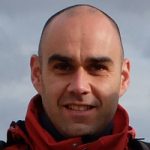
Vasco Ramos
ICS-ULisboa, Portugal
Vasco Ramos (Lisbon, 1976), is a postdoctoral researcher, with a PhD in Sociology from the University of Lisbon. Among other interests, his research has focused on issues such as social inequality, class and mobility, and family sociology. More recently, he has focused on food, food practices and human-animal studies. Currently, he is a researcher at CLAN, conducting ethnographic work with children and pets, with interest in understanding how specific categorisations of non-human animals relate to food practices and preferences.
Since 2009 he has worked on several projects at ICS-UL, namely on a research project on family trajectories and social networks, coordinated by Karin Wall. Currently, he is part of the Life research group LIFE – Life Course, Inequality and Solidarities: Practices and Policies. He also collaborates with OFAP - Observatory of Families and Family Policies. As a postdoc researcher, he was part of the Portuguese team working on the ERC funded research project Families and Food in Hard Times. Since August 2017, he is developing a research project (based on an individual post-doctoral fellowship from the FCT) entitled Living with Uncertainty: Enduring Precariousness over the life course.
PhD Students
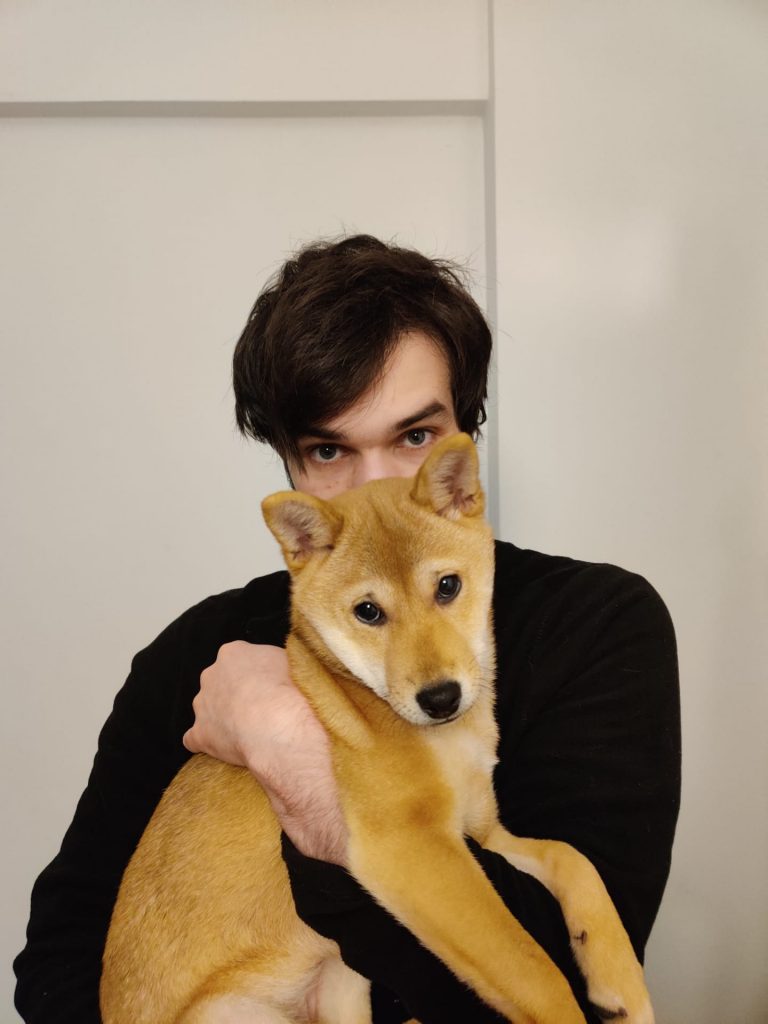
Henrique Tereno
ICS-ULisboa
Holds a bachelor’s degree in European Studies by the Faculty of Arts and Humanities of the University of Lisbon and a master’s degree in Anthropology by ISCTE/UTAD. Worked as a research assistant on the project CLAN - Children-Animal's Friendships: challenging boundaries between humans and non-humans in contemporary societies” in the Institute of Social Sciences. He is a member of the Human-Animal Studies Hub, partaking in its activities and collaborating in the organization. Favorite research topics focus on the relations between humans and non-human animals. He's currently a PhD FCT fellowship holder (2020.05345.BD) in the OpenSoc Doctoral program in Sociology. He's developing a thesis on how children categorise the animals they interact with through their practices.

Clara Venâncio
ICS-ULisboa
Clara Venâncio graduated in Communication Design from the University School of Arts of Coimbra and concluded the first curricular year of the MA in Sound and Image with a specialization in Computer Animation from the Catholic University of Portugal. She holds a Master's Degree in Product Design from the Superior School of Arts and Design of Caldas da Rainha where she completed the thesis “Animal Dignity - Development of Habitats for Domestic Animals” and the prototypes “Domus Petra” and “Locus Turi". She attended the Post-Graduate course Animals & Society at the Institute of Social Sciences of the University of Lisbon and currently works as a Research Assistant in the CLAN project. She is interested in the interactions between humans, animals, and objects. Mainly in which way objects condition and affect the actions of humans and animals.

ICS-ULisboa
After completing a BA in Sociology at Sorbonne University, Chiara earned her MRes in Environmental Humanities at the School for Advanced Studies in the Social Sciences of Paris (EHESS). In 2023, she was an intern at the Rachel Carson Center for Environment and Society in Munich, and became co-editor of Arcadiana, a blog about literature, culture and the environment.
As of March 2024, she is a PhD student in Anthropology at the Institute of Social Sciences, University of Lisbon, and a member of the ABIDE team.
Her research interests are, among others, environmental anthropology, multispecies literature and storytelling.
Visiting Scholars

Leticia Fantinel
Professor, Federal University of Espírito Santo
Visiting researcher
(04/2022 to 04/2023)
Leticia Fantinel is a professor at the Department and Postgraduate Program in Administration in the Federal University of Espírito Santo, Brazil. PhD in Business Administration (Federal University of Bahia, Brazil, with internship at Paris IX University, France), Master and Bachelor in Business Administration (Federal University of Rio Grande do Sul, Brazil). Coordinator of the Study Group on Symbolism and Daily Practices in Organizations - GESIP/UFES. Coordinator of Work Group "Organizational and socio-environmental dynamics in the Anthropocene" at the Association for Research in Administration in Brazil (Anpad). Her research interests include: relationships between animals and organizations, organizational practices involving non-human beings, multispecies studies. Between 2022 and 2023, Letícia is a Visiting Researcher at the HAS-Hub and ICS-ULisboa, where she develops a post-doctoral research in collaboration with project Liminal Becomings: reframing human-animal relations in natural disasters. [CEECIND/02719/2017]. "Liminal Becomings: reframing human-animal relations in natural disasters". [CEECIND/02719/2017]", [CEECIND/02719/2017].

Janice Trajano
PhD Student, Federal University of Espírito Santo
Visiting researcher
(04/2022 to 04/2023)
Janice is a PhD student in Antropology through the Federal University of Pelotas, Brazil. She is Currently on a sandwich course at the Institute of Social Sciences of the University of Lisbon, with funding from the Coordination for the Improvement of Higher Education Personnel (CAPES). She has a master's degree in Anthropology from the Federal University of Ceará and a bachelor's degree in Nutrition from the Faculty of Juazeiro do Norte. She has research experience in food and rural studies, with a multi-species approach. Together with HAS-Hub, she is conducting research on human-animal relations in the context of droughts.

Filipe Cabacine
PhD Student, Federal University of Espírito Santo
Visiting researcher
(11/2025 to 12/2025)
Filipe Cabacine holds a master's degree and is pursuing a PhD in Administration from the Federal University of Espírito Santo (UFES), Brazil. He is a member of the Study Group on Symbolism and Everyday Practices in Organisations (GESIP/UFES) and the ECOS Network – Centre for Studies in Organisational and Socio-Environmental Compositions. His research interests include the relationships between nature and organisations in the Anthropocene; the ecologies of organisational practices; the management and (cosmo)politics of preservation/conservation from more-than-human perspectives; post-qualitative research; and multispecies studies. His doctoral thesis investigates the ecology of management practices in a Strict Nature Reserve, the Itaúnas State Park (PEI), located in northern Espírito Santo, Brazil. He is currently a visiting student at HAS-Hub and ICS-ULisboa, under the supervision of Professor Verónica Policarpo.
Antigos Colaboradores

Ana Horta ✞
ICS-ULisboa, Portugal
Ana Horta foi investigadora auxiliar no Instituto de Ciências Sociais da Universidade de Lisboa. Foi doutorada em Sociologia pelo ISCTE – Instituto Universitário de Lisboa. Os seus principais interesses de investigação estiveram centrados nas práticas e representações relacionadas com a transição energética, a pobreza energética e os discursos mediáticos sobre energia e alterações climáticas. Também realizou investigação sobre insegurança alimentar, alimentação e relações entre humanos e animais.

Ana Nunes de Almeida
ICS-ULisboa, Portugal
Sociologist and a researcher at the ICS-ULisboa. Her favourite sicentific themes are: children and childhood, family and schooling, children and animals, new ethical dilemmas in the research with children. She is currently the chair of the Scientific Council at ICS-ULisboa and a member of the Directive Commitee of the RN04 Children and Childhood, European Sociological Asssociation).

Fernando Araújo
FDUL, Portugal
Professor Catedrático da Faculdade de Direito da Universidade de Lisboa.

Joana Catela
ICS-ULisboa, Portugal
Joana Catela studied Social Anthropology at FCSH-Nova and Latin American Studies at Cambridge University. Between 2010 and 2011 she attended the post-graduate course “Health anthropology: cultural competence in clinical setting”. After a year working for the local administration, in 2018 he received a doctorate in Anthropology from ISCTE-IUL with the thesis “On the margins and in transit: mental health and good intentions in an IPSS on the outskirts of Lisbon”, based on intensive ethnographic fieldwork in a social housing neighborhood.
Between 2018 and 2019, she joined ICS-ULisboa as a postdoctoral researcher working for project “exPERts - Organizing planning knowledge: housing policy and the role of experts in PER”. She developed a multisited ethnographic investigation both in Cascais and Alta de Lisboa with former residents of the former neighborhoods and with the experts involved in their relocation.
Between July 2020 and February 2021, Joana Catela worked for “SPLACH - Spatial Planning for Change”, based at ISCTE -IUL, a research project focused on investigating the Lisbon Metropolitan Area food system, for which she developed a remote ethnography about food basket producers.
She has recently joined ICS-ULisboa to work as a post-doc researcher for project “CLAN - Children-Animals Friendships: challenging boundaries between humans and non-humans in contemporary societies”.
Her main research interests focus on issues related to medical and urban anthropology, immigration, mental health, housing, vulnerability and human-animal studies, topics on which she has published and participated in scientific conferences, both nationally and internationally.

Miguel Barbosa
FM-ULisboa, Portugal
Developmental and clinical psychologist, and psychotherapist. Phd in Psychology at Faculty of Psychology of the University of Lisbon. Master in Psychology (ISPA), Sociology of Health and Illness (ISCTE), Social and Cultural Anthropology (ICS-UL), and Bioethics (FML). Invited Assistant Professor at the Faculty of Medicine of the University of Lisbon. Postdoc researcher in the Instituto de Ciências Sociais da Universidade de Lisboa. Researcher in Núcleo Académico de Estudos e Intervenção sobre o Luto/Centro de Bioética da FMUL

Teresa Líbano Monteiro
Investigadora Associada ICS-ULisboa, Portugal
PhD in Sociology (ISCTE-IUL) (2007). She taught Sociological Theory and Methods of Research at the Faculty of Human Sciences of the Portuguese Catholic University (1993-2017). In 2013, she went to the Centre Max Weber (Lyon- France) to further developed Human-Animal Studies.

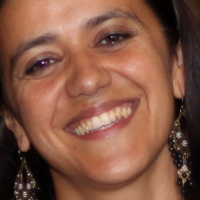
Verónica Policarpo
ICS-ULisboa, Portugal
Link: https://www.ics.ulisboa.pt/en/pessoa/veronica-policarpo
ORCID: http://orcid.org/0000-0002-9245-1057
CIÊNCIA VITAE: https://www.cienciavitae.pt//C211-DB67-6F6F
Twitter: @VMPolicarpo

Ana Nunes de Almeida
ICS-ULisboa, Portugal
Sociologist and a researcher at the ICS-ULisboa. Her favourite sicentific themes are: children and childhood, family and schooling, children and animals, new ethical dilemmas in the research with children. She is currently the chair of the Scientific Council at ICS-ULisboa and a member of the Directive Commitee of the RN04 Children and Childhood, European Sociological Asssociation).

Mónica Truniger
ICS-ULisboa, Portugal
Mónica is a sociologist at ICS-ULisboa. She has been dedicated to research, teaching and communication on social food practices through research on food poverty, sustainable food consumption and the eating habits of families with children. She has published several books on these topics with Portuguese and international publishers.

Vasco Ramos
ICS-ULisboa, Portugal
Vasco Ramos (Lisbon, 1976), is a postdoctoral researcher, with a PhD in Sociology from the University of Lisbon. Among other interests, his research has focused on issues such as social inequality, class and mobility, and family sociology. More recently, he has focused on food, food practices and human-animal studies. Currently, he is a researcher at CLAN, conducting ethnographic work with children and pets, with interest in understanding how specific categorisations of non-human animals relate to food practices and preferences.
Since 2009 he has worked on several projects at ICS-UL, namely on a research project on family trajectories and social networks, coordinated by Karin Wall. Currently, he is part of the Life research group LIFE – Life Course, Inequality and Solidarities: Practices and Policies. He also collaborates with OFAP - Observatory of Families and Family Policies. As a postdoc researcher, he was part of the Portuguese team working on the ERC funded research project Families and Food in Hard Times. Since August 2017, he is developing a research project (based on an individual post-doctoral fellowship from the FCT) entitled Living with Uncertainty: Enduring Precariousness over the life course.

Teresa Líbano Monteiro
Investigadora Associada ICS-ULisboa, Portugal
PhD in Sociology (ISCTE-IUL) (2007). She taught Sociological Theory and Methods of Research at the Faculty of Human Sciences of the Portuguese Catholic University (1993-2017). In 2013, she went to the Centre Max Weber (Lyon- France) to further developed Human-Animal Studies.
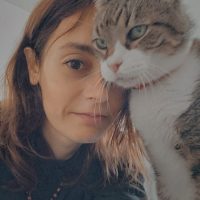
Joana Catela
ICS-ULisboa, Portugal
Joana Catela studied Social Anthropology at FCSH-Nova and Latin American Studies at Cambridge University. Between 2010 and 2011 she attended the post-graduate course “Health anthropology: cultural competence in clinical setting”. After a year working for the local administration, in 2018 he received a doctorate in Anthropology from ISCTE-IUL with the thesis “On the margins and in transit: mental health and good intentions in an IPSS on the outskirts of Lisbon”, based on intensive ethnographic fieldwork in a social housing neighborhood.
Between 2018 and 2019, she joined ICS-ULisboa as a postdoctoral researcher working for project “exPERts - Organizing planning knowledge: housing policy and the role of experts in PER”. She developed a multisited ethnographic investigation both in Cascais and Alta de Lisboa with former residents of the former neighborhoods and with the experts involved in their relocation.
Between July 2020 and February 2021, Joana Catela worked for “SPLACH - Spatial Planning for Change”, based at ISCTE -IUL, a research project focused on investigating the Lisbon Metropolitan Area food system, for which she developed a remote ethnography about food basket producers.
She has recently joined ICS-ULisboa to work as a post-doc researcher for project “CLAN - Children-Animals Friendships: challenging boundaries between humans and non-humans in contemporary societies”.
Her main research interests focus on issues related to medical and urban anthropology, immigration, mental health, housing, vulnerability and human-animal studies, topics on which she has published and participated in scientific conferences, both nationally and internationally.

Henrique Tereno
ICS-ULisboa, Portugal
Holds a bachelor’s degree in European Studies by the Faculty of Arts and Humanities of the University of Lisbon and a master’s degree in Anthropology by ISCTE/UTAD. Worked as a research assistant on the project CLAN - Children-Animal's Friendships: challenging boundaries between humans and non-humans in contemporary societies” in the Institute of Social Sciences. Is a member of the Human-Animal Studies Hub, partaking in its activities and collaborating in the organization of events. Favorite research topics focus on the relations between humans and non-human animals. Is currently a PhD FCT fellowship holder (2020.05345.BD) in the OpenSoc Doctoral program in Sociology, with a project on the categorization that children make of non-human animals through their practices. e está a desenvolver uma tese sobre a categorização que as crianças fazem dos animais com quem se relacionam através das suas práticas.

Ricardo R. Santos
ISAMB, FM-ULisboa, Portugal
Board-certified biologist. Degree in Biology by the Faculty of Sciences of the University of Lisbon (FCUL). Complementary course in Philosophy by the Faculty of Social and Human Sciences of the New University of Lisboa (FCSH-NOVA). Attended several courses on Animal Behavior, Dog Cognition, Animal Welfare and Management of Animal Shelters (RSPCA, EFAW, CUAWIC/Cambridge University, Duke University, and University of Edinburgh). He worked voluntarily for more than a decade at a national animal rights NGO. Advanced education in Bioethics, Grief & bereavement, Qualitative methods, and Science communication. At this moment, he is concluding the Master in Science Communication, with a dissertation on strategic communication of science in health (FCSH-NOVA). Former investigator of the Center for Philosophy of Science of the University of Lisbon (FCUL), where he was member of the executive committee, the coordinating committee and assistant-head of the Philosophy of Life Science research group. He is now investigator of the Faculty of Medicine of the University of Lisbon (FMUL), namely at the Environmental Health Institute, where he’s the head of the communication and image office and team member of the Environmental Health Behavior Lab, and at the Center for Bioethics. He has been invited lecturer in Ethics of Clinical Research at the Doctoral Programme of the Lisbon Academic Medical Centre. He is also co-coordinator of the Museu da Memória de Medicina (FMUL) and member of the working group on predatory publications appointed by the FMUL’s Dean. Consultant to the Academic Center of Study and Intervention on Grief and Bereavement (FMUL). Editorial Board Review member of the Human-Animal Interaction Bulletin, edited by the American Psychological Association.

Rita Gouveia
ICS-ULisboa, Portugal
Rita Gouveia is post-doc researcher at the Institute of Social Sciences of the University of Lisbon (ICS-ULisboa). She has a BA in Social Psychology, a Master in Psychology of Education and Development, and a PhD in Sociology of Family, Gender, and Youth. Since 2014, she is member of the Executive Board of the RN13 Sociology of Families and Intimate Lives of the European Sociological Association and she was board member of the European Society of Family Relations (ESFR) between 2012 and 2018. Over the last decade, she has been strongly engaged in the development of theoretical and empirical research on families, personal networks, conjugalities, and life course at both national and international level. Another transversal dimension of her research interests is the permanent investment in innovative methodologies and complex datasets, such as social network analysis or longitudinal designs. She is currently investigating the changing meanings and practices of family in personal networks of gay men and lesbians in Portugal.

João Graça
ICS-ULisboa, Portugal
PhD in Psychology (ISCTE – University Institute of Lisbon, 2016), and is currently Postdoctoral Research Fellow at the Institute of Social Sciences, University of Lisbon (ICS-ULisboa), and Invited Assistant Professor at Faculdade de Ciências Humanas, Catholic University of Portugal (FCH-UCP). His main interest is researching transitions towards healthier and more sustainable consumption habits, with a main focus on plant-based diets. He is also interested in understanding the psychology of human exploitation/protection of non-humans and the natural environment.
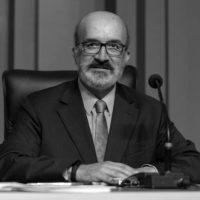
Fernando Araújo
FDUL, Portugal
Professor Catedrático da Faculdade de Direito da Universidade de Lisboa

Lisa Mestrinho
FMV-ULisboa, Portugal
Doctor of Veterinary Medicine (DVM) by the Faculty of Veterinary Medicine, Technical University of Lisbon. University Specialist in Odontology and Maxillofacial Surgery by the Complutense University of Madrid. Master of Science (MSc) in Oncology by the Biomedical Sciences Institute Abel Salazar, University of Oporto. European Master of Small Animal Veterinary Medicine in Dentistry by the University of Luxembourg. Doctor of Philosophy (PhD) in Veterinary Clinic by the University of Lisbon. Fellow of the Academy of Veterinary Dentistry (FAVD). Since 2003, she has been dedicated to cat and dog clinics, in particular general surgery, oncological surgery, reconstructive surgery, oral surgery and odontology. She is assistant professor at the Faculty of Veterinary Medicine at the University of Lisbon, where she teaches in the area of medicine, surgery and anesthesiology. She is also the coordinator of the optional course Advanced studies on odontology and oral surgery in dogs and cats. She is also a researcher at the Clinical Research Laboratory of the Interdisciplinary Research Center for Animal Health at the same faculty. She is responsible for the odontology and oral surgery of the Veterinary School Hospital. She was president of the European Veterinary Dental Society and is currently president of the Portuguese Small Animal Veterinary Association and elected member of the General Assembly of the Portuguese Veterinary Medical Association.

Ana Horta
ICS-ULisboa, Portugal
Ana Horta is research assistant at the University of Lisbon, Institute of Social Sciences (Portugal). She holds a PhD in Sociology from ISCTE-IUL (University Institute of Lisbon). Her main research interests are focused on social practices and representations related to energy transition, energy poverty, and media discourses on energy issues and climate change. She has also been interested in food, food insecurity, and human-animal relations. In the project “Between the school and the family: children´s food knowledge and eating practices” (2011-14) she analyzed the relations between children and animals. Recently, in her free time she has also been conducting research on dog walking.

Luís Cordeiro-Rodrigues
University of Hunan, China

Miguel Barbosa
FM-ULisboa, Portugal
Developmental and clinical psychologist, and psychotherapist. Phd in Psychology at Faculty of Psychology of the University of Lisbon. Master in Psychology (ISPA), Sociology of Health and Illness (ISCTE), Social and Cultural Anthropology (ICS-UL), and Bioethics (FML). Invited Assistant Professor at the Faculty of Medicine of the University of Lisbon. Postdoc researcher in the Instituto de Ciências Sociais da Universidade de Lisboa. Researcher in Núcleo Académico de Estudos e Intervenção sobre o Luto/Centro de Bioética da FMUL

Rui Pedro Fonseca
CIES ISCTE-IUL, Portugal

Andrea Pavoni
DINÂMIA’CET ISCTE-IUL, Portugal
Andrea Pavoni is post-doctoral researcher at DINÂMIA'CET ISCTE-IUL, University Institute of Lisbon. Drawing from various areas such as critical geography, urban studies, legal theory, sociology and philosophy, his research explores the relation between materiality, normativity and the urban from various interdisciplinary angles. Among his current interests, he is investigating the normative relation between animals and the city as it dramatically changes in the age of planetary urbanisation. Andrea is a fellow at the Westminster Law and Theory Lab, co-editor of the Law and the Senses Series(University of Westminster Press), and associate editor at the journal Lo Squaderno, Explorations in Space and Society. His book, Controlling Urban Events. Law, Ethics and the Material, is out with Routledge.

Leonor Galhardo
Professor
Leonor Galhardo is a biologist with a Master's degree in Applied Animal Behaviour (University of Edinburgh) and a PhD in Animal Science (University of Porto), in which she published several studies on psychological stress and welfare assessment in fish. She worked at the Directorate-General for Veterinary and Food (DGAV) and has been providing consultancy services on animal welfare for the last 20 years. During this period, she has carried out various activities in cooperation with competent authorities, professional associations and non-governmental organisations related to animal protection and welfare. The application and enforcement of legislation on the protection of wild animals in captivity has been a central aspect of her technical activities, within the scope of which the “Manual of Good Practice of the EU Zoos Directive” was published. Education in animal welfare is an important part of her career, having coordinated and taught several animal welfare courses for university students and professionals. She is a lecturer at ISPA-Instituto Universitário (Lisbon), where she teaches topics related to animal welfare and coordinates the Postgraduate Course in Animal Welfare.
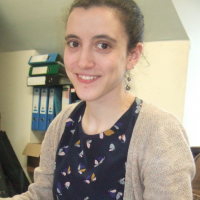
Filipa Soares
ICS-ULisboa, Portugal
PhD in Human Geography from the University of Oxford and BA and MA in Anthropology from the New University of Lisbon. She is currently a researcher at ICS-ULisboa, within the “Project People and Fire”. Her research has been focused on human-wildlife relations and the social and biopolitical dimensions of nature conservation, in Portugal and the UK. She has also participated in a study about the representations of the Iberian wolf and birds in Portuguese literature (19th-21st centuries) and co-edited a publication about owls in Portuguese popular culture.
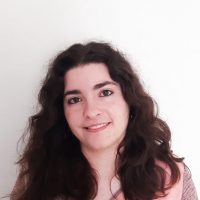
Clara Venâncio
ICS-ULisboa, Portugal
Clara Venâncio graduated in Communication Design from the University School of Arts of Coimbra and concluded the first curricular year of the MA in Sound and Image with a specialization in Computer Animation from the Catholic University of Portugal. She holds a Master's Degree in Product Design from the Superior School of Arts and Design of Caldas da Rainha where she completed the thesis “Animal Dignity - Development of Habitats for Domestic Animals” and the prototypes “Domus Petra” and “Locus Turi". She attended the Post-Graduate course Animals & Society at the Institute of Social Sciences of the University of Lisbon and currently works as a Research Assistant in the CLAN project. She is interested in the interactions between humans, animals, and objects. Mainly in which way objects condition and affect the actions of humans and animals.

Sofia Biscaia
University of Aveiro, Portugal
Maria Sofia Pimentel Biscaia holds a doctoral degree in Literature by the University of Aveiro (2005). She has conducted interdisciplinary research in the fields of visual, gender and postcolonial studies, including on South Asian, African, British and Luso-American authors. She has published extensively in domestic and international journals and is the author of the book Postcolonial and Feminist Grotesque: Texts of Contemporary Excess. She also co-edited the collection of essays Intercultural Crossings: Conflict, Memory, Identity. She is part of the international project Bodies in Transit 2 which addresses how bodies have been historically transformed through social relations, discourses, and technologies, by drawing from feminist, queer, postcolonial and posthumanist theories of the embodied self. She has been increasingly interested in Critical Animal Studies and has presented numerous papers in international conferences on related issues ranging from queer animality, food studies, advertising and national identity, feminist and postcolonial intersections. She has published among others “Loving Monsters: The Curious Case of Patricia Piccinini’s Posthuman Offspring” (2019) and “What Comes After the Woman: Becoming Plant in Han Kang’s The Vegetarian” (2019). The article “Of Mice and Women: Gendered and Speciesist Violence in Joyce Carol Oates’s ‘Martyrdom’” is forthcoming in 2021 in the volume Cultural Representations of Gender Vulnerability and Resistance published by Palgrave.
Currently she teaches at the University of Aveiro, Portugal.
